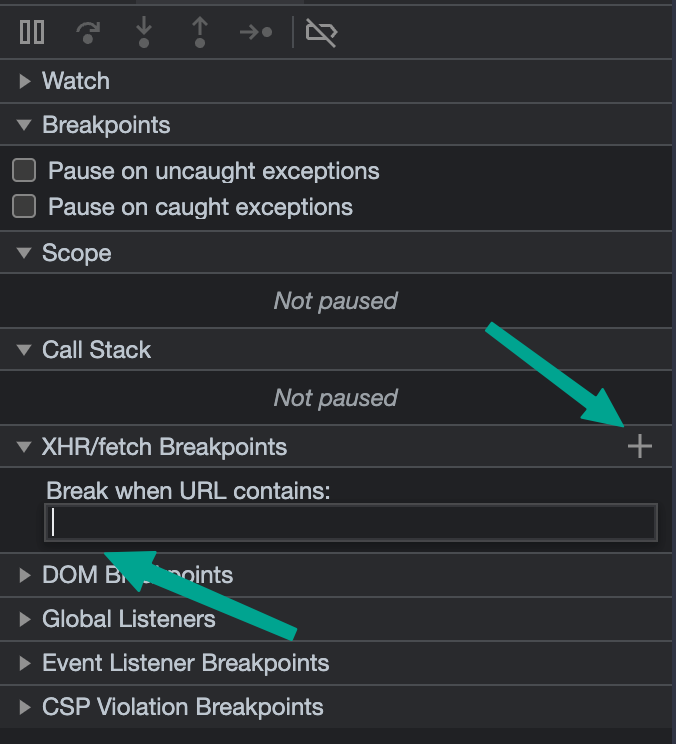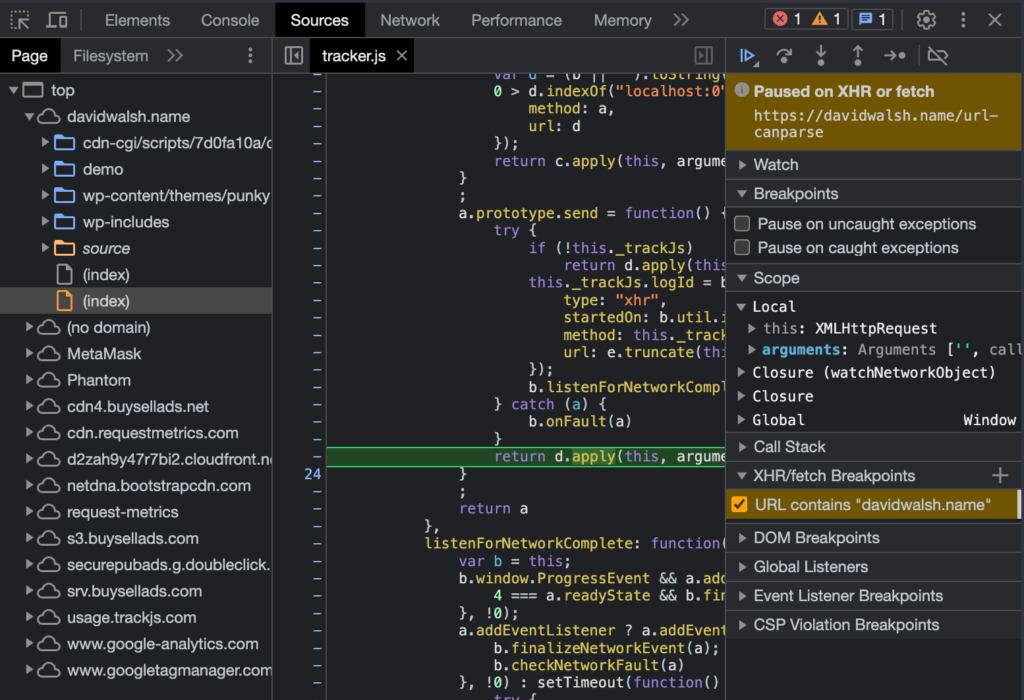Use XHR/fetch Breakpoints!
Publikováno: 7.8.2023
Web debugging tools are so incredibly excellent these days. I remember the days where they didn’t exist and debugging was a total nightmare, even for the simplest of problems. A while back I introduced many of you to Logpoints, a way to output console.log messages without needing to change the source files. Another great breakpoint […]
The post Use XHR/fetch Breakpoints! appeared first on David Walsh Blog.
Web debugging tools are so incredibly excellent these days. I remember the days where they didn’t exist and debugging was a total nightmare, even for the simplest of problems. A while back I introduced many of you to Logpoints, a way to output console.log messages without needing to change the source files. Another great breakpoint type is XHR/fetch breakpoints, allowing you to pause execution when an AJAX call is made. Let’s look at XHR/fetch breakpoints!
To set an XHR/fetch breakpoint, open your browser’s Developer Tools and click the Sources tab — the same tab you open for other breakpoints. Under the XHR/fetch accordion item, click the big “+” button. You’ll see an empty text input:

Within that text input, type a string that you’d like to break all XHR/fetch calls on. For example, if I wanted to break any time a fetch request was made, I would input davidwalsh.name:

In the case above, a XHR/fetch request breakpoint halts execution because a request is made to https://davidwalsh.name/url-canparse. You’ll be able to step through and step into like you can with regular breakpoints, and you’ll get a full Call Stack pane to see how execution got to a given point.
XHR/fetch breakpoints are another great way to debug your web app. The more reliant we are on dynamic websites with frequently changing content, debugging fetch calls is a must. Happy debugging!
The post Use XHR/fetch Breakpoints! appeared first on David Walsh Blog.